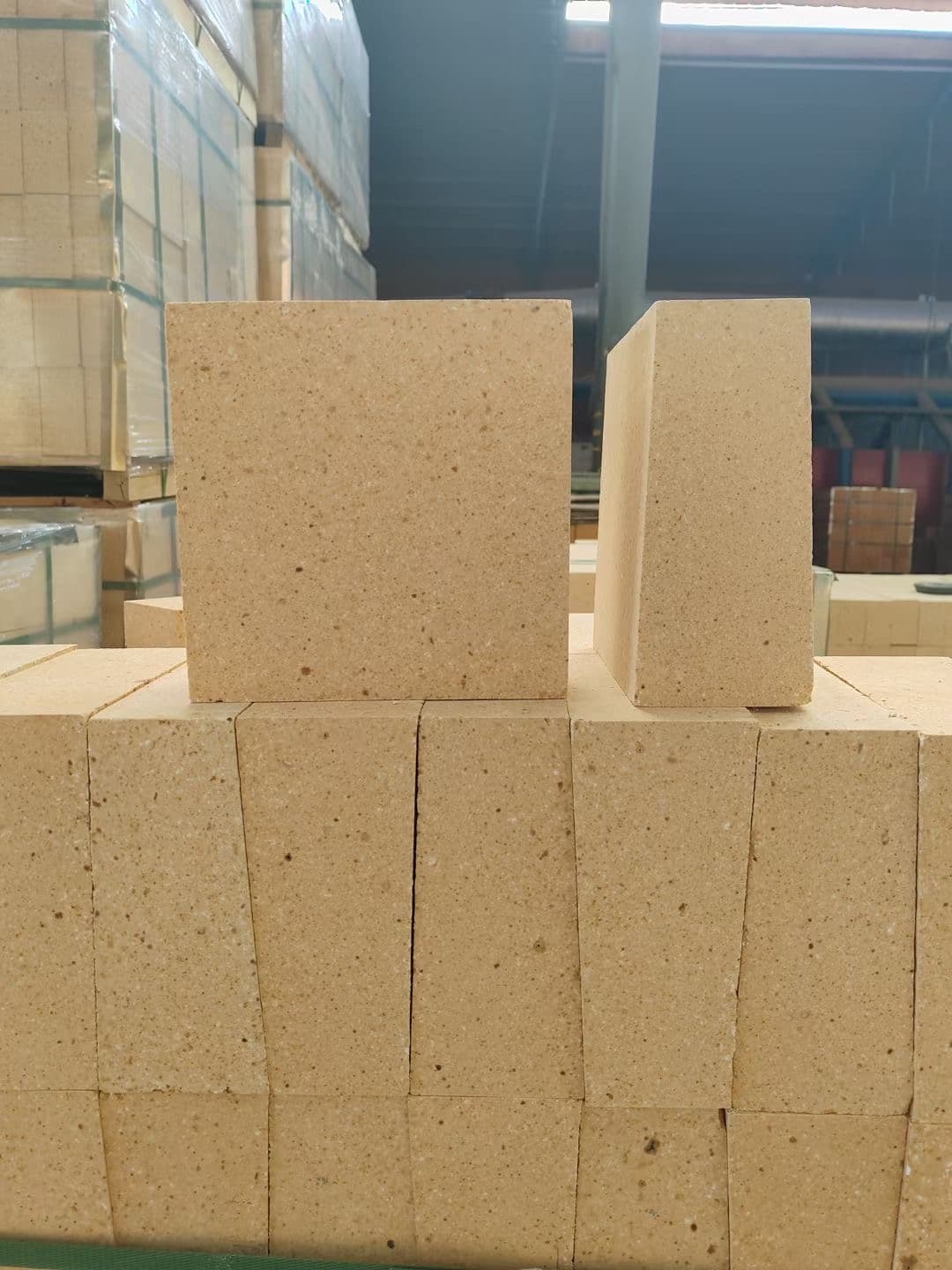Clay Bricks
The refractoriness of clay bricks is comparable to that of silica bricks, up to 1690~1730℃, but the load softening temperature is more than 200℃ lower than that of silica bricks. Because in addition to high refractoriness mullite crystals, clay bricks also contain nearly half of the low melting point amorphous glass phase.
In the temperature range of 0~1000°C, the volume of clay bricks expands uniformly as the temperature increases. The linear expansion curve is approximately a straight line, and the linear expansion rate is 0.6%~0.7%, which is only about half of that of silica bricks. When the temperature reaches 1200°C and continues to rise, its volume will begin to shrink from the maximum expansion value. The residual shrinkage of clay bricks leads to the loosening of masonry mortar joints, which is a major disadvantage of clay bricks. When the temperature exceeds 1200°C, the low-melting point substances in the clay bricks gradually melt, and the particles are brought very close to each other due to surface tension, resulting in volume shrinkage.
Showing the single result

